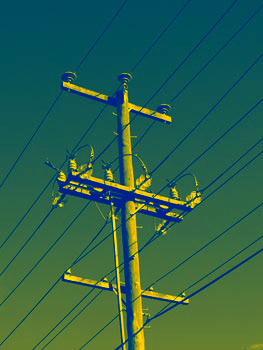Grattan slams gold-plated power
 A new report criticises several states for driving unnecessary investment in power networks, leaving consumers to foot the bill.
A new report criticises several states for driving unnecessary investment in power networks, leaving consumers to foot the bill.
The Grattan Institute’s new Down to the Wire report (PDF) says NSW, Queensland and Tasmania have spent up to $20 billion more than was needed on the electricity grid, and households and businesses are paying for it through their power bills.
The analysts say those state governments should write down the value of the assets to reduce electricity bills, or give direct rebates to customers.
The cost of the National Electricity Market’s power grid rose from $50 billion in 2005 to $90 billion today, but up to $20 billion of that was not needed to cover growth in population, consumption, or even demand at peak times, Grattan says.
The analysis suggests there have been some improvements in reliability of supply, but not enough to justify the spending.
The over-investment was overwhelmingly in NSW and Queensland.
In 2005, the NSW and Queensland governments required their network businesses to build excessive back-up infrastructure to protect against even the most unlikely events.
At the same time, growth in demand for electricity slowed, as appliances became more energy efficient and more households installed solar panels.
“Unless state governments fix the mistakes of the past, consumers will continue to pay for assets that are neither used nor useful,” the think tank says.
“Prices that are higher than they should be will lead to poor investment decisions in future.”
In Queensland and Tasmania, where the businesses are still state-owned, the analysts say the government should write down the value of the assets. This would mean governments foregoing future revenue in favour of lower electricity bills.
“In NSW, intervening to revalue the privatised businesses would create too many problems, so the Government should instead use the proceeds of the privatisations to fund a rebate to consumers,” Grattan said in a statement.
“To prevent the mistakes happening again, state governments should move to full privatisation, because the evidence shows that privatised electricity businesses deliver lower prices for consumers, without compromising reliability or safety.”
The report also calls on governments to change the way electricity is priced, so all consumers can see when demand is high, and that network costs would fall if customers reduced their consumption at critical peak periods.
“Consumers are copping the bill for the past excessive spending on the electricity grid,” the institute says.
“Governments should act now to give some of that money back to consumers, and to ensure Australia has a more sustainable and affordable electricity network.”








 Print
Print